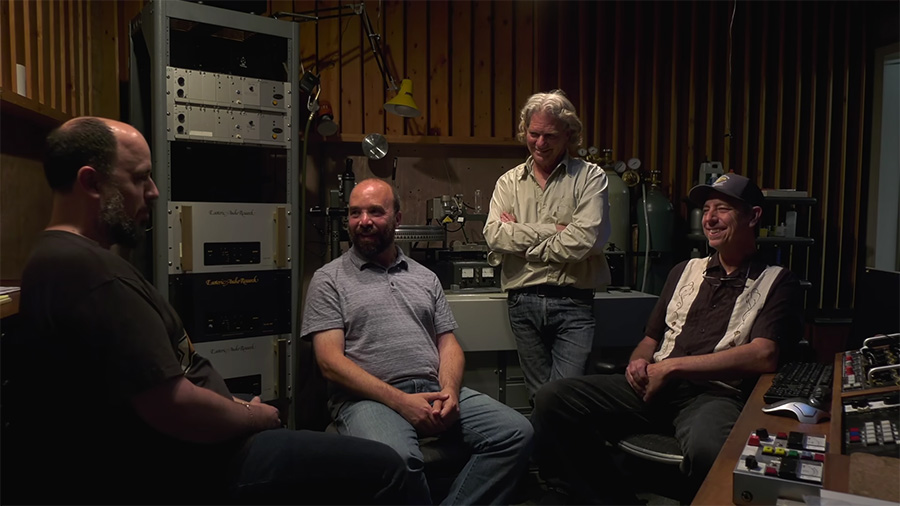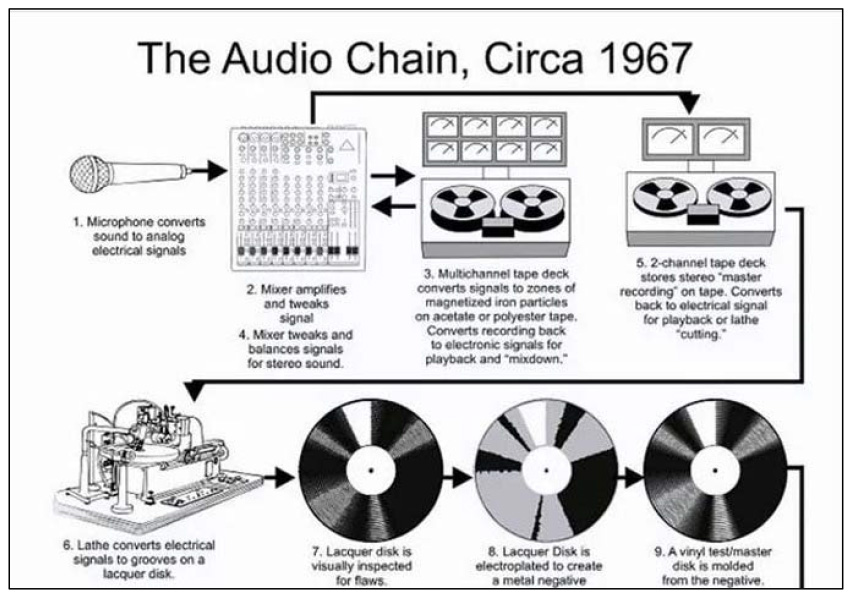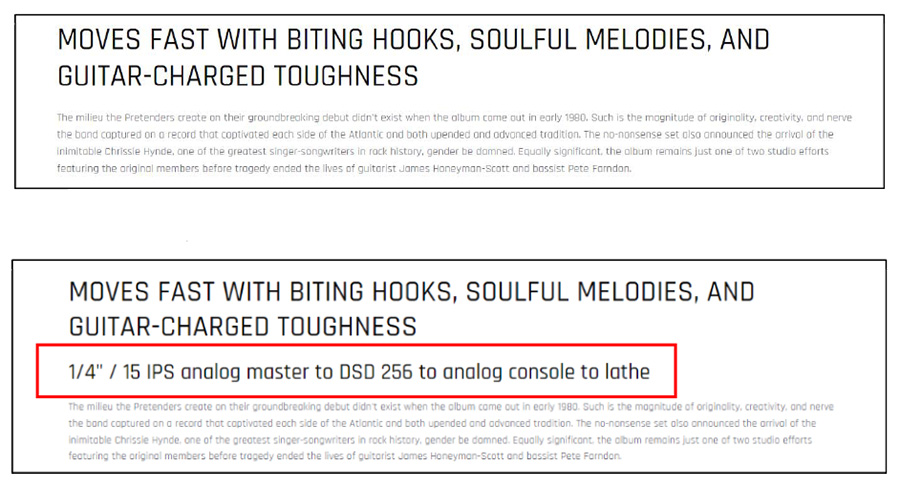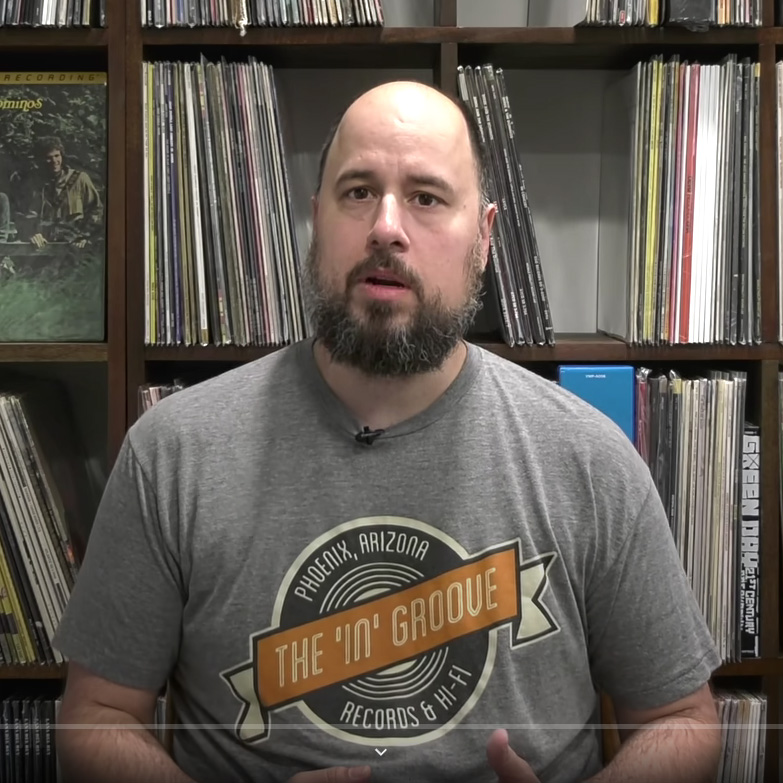Has MoFi Been Pretending?
A lawsuit alleging a variety of deceptive practices by Mobile Fidelity Sound Lab, Inc. (Mobile Fidelity or MoFi), a major player in the premium analog vinyl record community, has been filed by premium vinyl record fan Adam Stiles. Stiles is bringing this case on behalf of himself “…and all others similarly situated against Defendent Mobile Fidelity Sound Labs, Inc.”
Those whom he seeks to represent are all customers who purchased MoFi products since 2011 on the basis of the company’s assurance of its products’ pure analog, direct from the master tape, heritage. It turns out that this crucial selling point for the company is…allegedly…in many cases, a lie.
See more on the alleged deception by Mobile Fidelity Sound Lab
This lawsuit is seeking a class action status designation in order for the plaintiff to represent all customers of MoFi, to whom the plaintiff alleges that the company has lied about the pure analog production process of their album releases, which for years were sold on the basis of being produced in a pure analog domain from the original master tapes – making no mention of the use of DSD (direct stream digital) technology. Selling records labeled as “Original Master Recording” or others sold as “Ultradisc One Step” series, plaintiff Stiles says since 2011 the company “continued to misrepresent to consumers that it did not use digital mastering, or otherwise failed to disclose the use of digital mastering, while still charging the same price premium for the Records as if they were entirely analog recordings.”
Let’s Go Back to Last Month
Let’s back up for a moment to give you some foundation for the actions taking place now. Last month, no less than the Washington Post broke the news that a record store owner from Phoenix, AZ discovered on a visit to Mobile Fidelity Sound Lab’s headquarters in Sebastopol, CA, that the company was using a DSD step in the process of creating certain of their supposedly pure analog vinyl records.
This is something that has been running around the rumor mill for a while, and MoFi had very respected members of the audiophile press, such as Michael Fremer sticking up for them. Even competitors like Shane Buettner, owner of Intervention Records, said the rumor of a digital step in MoFi’s process was completely untrue. It seems even the experts can sometimes be fooled.
A Record Store Owner Gets an Invitation from MoFi It Would Later Regret
Then Mike Esposito, owner of the “In” Groove in Phoenix made a YouTube video in which he declared that “pretty reliable sources” had informed him that MoFi uses digital files in their production process. There was an eruption of pushback from the audiophile community. Why? Because as Washington Post reporter Geoff Edgers notes:
In the world of audiophiles — where provenance is everything and the quest is to get as close to the sound of an album’s original recording as possible — digital is considered almost unholy. And using digital while claiming not to is the gravest sin a manufacturer can commit.
From Washington Post, How a Phoenix record store owner set the audiophile world on fire
However, John Wood, MoFi’s Executive Vice President of Product Development – someone who knew the truth about MoFi’s digital secret – made a fateful move he would later regret…he invited Esposito to visit the company’s headquarters for a tour. During that tour, Esposito was given permission to interview on camera, and most importantly on the record, some of the company’s engineers.
Mobile Fidelity Engineers Tell the Truth and Things Really Hit the Fan
And those engineers did what in my experience engineers always do – they told the truth. And that’s when things really hit the fan. It’s a fascinating tale and I recommend you read all the details in the Washington Post story at this link (subscription)…
All of which brings us to this lawsuit now. Adam Stiles was not mentioned in the Washington Post story, but the North Carolina resident asserts in this lawsuit that he has purchased several MoFi records over the years…most recently in February 2022.
Plaintiff Purchases ‘The Pretenders’ Record, But Who is Pretending?
That last purchase was a reissue of The Pretenders’ debut album. Feels like a bit of irony here, as Stiles goes on to allege that Mobile Fidelity is really pretending that his Pretenders record was an all-analog production. Stiles said he paid $40 for the album, based in part on MoFi’s representation that it was an “original master recording.” Also, MoFi’s website said that the Pretenders record was made using their “Gain 2 Ultra Analog System.” That system, the website says, “only utilize[s] first generation original master recordings as source material.”
Those words are music to an audiophile’s ears.
Lawsuit Alleges Multiple Instances of Misrepresentation by MoFi
Although the lawsuit makes no mention of the Washington Post article that was posted on August 5th, it does say this, “In or about July 2022, Mr. Stiles discovered that his Record used DSD technology as part of the mastering chain.”
The pleadings in the lawsuit go to great length to mention all instances where MoFi misrepresented certain series of recordings as pure analog productions. Not all MoFi products are pure analog, certain records carrying the “Mobile Fidelity Sound Lab” banner are understood to use DSD technology in their production. But others with banners such as “Original Master Recording” and “Ultradisc One-Step Process” were clearly presented as full analog productions.

Things Changed in 2011, More Than a Decade Ago
This alleged misrepresentation is visible on the actual product packaging, on the company’s website, as well as expressed in press interviews by various MoFi employees and executives. The company’s customer service department sent emails to consumers in 2020, telling them “there is no analog to digital conversion in our vinyl cutting process. Any product that bears the ORIGINAL MASTER RECORDING” stripe on the jacket lets the customer know that the Original Master Tape was used to produce the release.”
The company’s materials claiming full analog production were largely correct in the period before 2011. However, in 2011 the company changed its process to begin incorporating DSD mastering in its production process. According to the lawsuit: “By the end of 2011, 60% of vinyl releases incorporated DSD, and MoFi’s last non-DSD recording was in 2020.
‘Instead, MoFi Intentionally Hid This Fact…’
But the company failed to disclose this change in production standards. “Instead, MoFi intentionally hid this fact from consumers until a July 2022 interview where MoFi’s engineers revealed the truth…”
The lawsuit notes that since the truth has finally come out, the company has begun to take steps to correct its materials. While this may allow future purchasers of MoFi products to make a better-informed decision, it does nothing for the thousands of customers who purchased their products under allegedly false pretenses.

Seeking Restitution; How Much? Read On…
The lawsuit seeks restitution for: “(i) breach of express warranty; (ii) breach of implied warranty; (iii) violation of the Magnuson-Moss Warranty Act…; (iv) fraud; (v) unjust enrichment; (vi) violation of the North Carolina Unfair and Deceptive Trade Practices Act…; and (vii) violation of state consumer fraud acts.”
How much restitution do Stiles and his proposed class seek? Well in the “Prayer for Relief,” the plaintiff seeks an order from the judge for “…compensatory and punitive damages in amounts to be determined by the Court and/or jury…” and “An award of statutory penalties to the extent available…” and “…pre-judgment interest on all amounts awarded…” and “…restitution and all other forms of monetary relief…” and “…awarding Plaintiff and the Classes their reasonable attorney’ fees and expenses and costs of suit.”
How much does this all add up to, you ask? Well, under the “Jurisdiction and Venue” section of the lawsuit, the plaintiff says this:
This Court has subject matter jurisdiction pursuant to 28 U.S.C § 1332(d)(2)(a) because this case is a class action where the aggregate claims of all members of the proposed class are in excess of $5,000,000, exclusive of interest and costs, there are approximately 5,000 members of the putative class, and Plaintiff, as well as most members of the proposed Class, are citizens of states different from Defendent.
ADAM STILES v. MOBILE FIDELITY SOUND LAB, INC., Class Action Complaint
Can MoFi Survive a Multi-Million Dollar Judgment?
So it would appear that the lawsuit contemplates a judgment “in excess of $5,000,000.” According to the Washington Post article, MoFi owner Music Direct brings in revenues of “more than $40 million a year” and Mobile Fidelity “earned about $9 million last year.” I’m going to assume that WaPo meant MoFi’s revenues were $9 million – as opposed to earnings (profits) of $9 million.

So a judgment in excess of $5 million would be a large and unusually bitter pill to swallow for the organization. But let’s not get ahead of ourselves…there is much to transpire between now and a judgment and certainly MoFi has a right to defend themselves against this action.
The Lesson? Transparency is Good
At the end of the day, if we learn any lesson at all from MoFi’s situation I believe it is this – be transparent when you make fundamental changes that could be interpreted as conflicting with your marketing claims. As my wife – a nurse – likes to say…an ounce of prevention is worth a pound of cure!
See the Mobile Fidelity website at mofi.com.
Learn all about Mike Esposito’s The “In” Groove at theingroove.com.







MoFi did not LIE, instead people read things into their statements that were not actually there.
You can argue they did not FULLY disclose the process, but no elements of the process are disclosed.
Further, other companies in the industry, such as Chad Kassem’s Analogue Productions, did the EXACT SAME THING.
You can go back in the Internet Archive and see they claimed Roger Water’s “Amused to Death” LP was made from “the original recordings” and only now, after the MoFi fallout, have the web pages been updated to note an intervening DSD step.
Likewise the high-res and DSD origins of some of their other offerings.
If the MoFi suit is successful (it may merely drive them out of business) many other audiophile LP vendors will surely follow.
This is a strange thing to get upset about. The actual harm would be, what? Maybe ego damage. A digital intermediary would not have altered the sound. Cutting to vinyl would have, but not transferring through DSD.
Um, yes, a digital intermediary *would* have harmed the sound, that’s the whole point.
If you cannot hear the difference between a pure analogue signal chain and a digital one, then it’s not something to worry about of course. However, to some people the difference is glaring.
It sounds like you are/were involved with this coverup/lie. It makes a BIG difference to all those people out there whole paid excessive high prices for records that are no better than DSD, and other forms pf digital devices, something they all would have previously disagreed with. So, the ‘harm’ is getting all those foolish people who got onto the ridiculous vinyl bandwagon to pay huge amounts for something you could get on a CD/SACD/DSD files with equal sound quality for 1/4 to 1/10the the price. This is false advertising, and intentionally misleading the public.
Not a lie, never misled, people ASSUMED something there was never a reason to assume.
“Oh, the little arrow implied…”
Stop it.
Strange conclusion. No, I had nothing to do with it. Also, the music available in digital format would, absent some strange event, have better sound quality than on vinyl, not merely as good as.
Often times, having a little bit of information leads people to draw conclusions that are either incorrect, or incomplete. The reason to buy a MiFi record has always been – because they sound better, and therefore are more fun to listen to. Sheffield Labs records were made with a process they called Direct to Disc. They spelled out that process of eliminating the tape recorder in the recording process. It was interesting, but more importantly, they were great sounding records. High performance audio has always been more about the level of execution, than the specific technology involved. The best way to judge MoFi is to have two copies of the same album, and play a song from each. If the MoFi version is more fun to listen to, isn’t the higher price well worth it?
Just the other day an engineer claimed DSD is analog…. so a 1::1 of DSD to vinyl is not only possible, it’s analog.
Anyway, if this gets on Sony’s radar I doubt the lawsuit will be allowed to reach an in-court conclusion. jmho
DSD is not analog. Sony used to like to promote it as analog-like, but it’s a type of delta-sigma modulation.
Oh, i know. yet MoFi touts DSD… so i expect Sony to tap a few shoulders. Of course no one should act surprised, it’s the music BUSINESS after all.
MoFi never called DSD “analog.”
Bill, apologies as in a sense I misspoke. Long story short, I doubt the lawsuit will reach final judgment in a courtroom. And frankly, the only one who at times ‘wins’ in these things are, you guessed it, the lawyers. My European friends think the USA is far too lawsuit happy. I concur.
I think the key word, and the one that adds confusion, is “harm”.
“Change” or “alter” would be more appropriate and easy to agree on. This wasn’t unintentional. The folks at MoFi want to make better sounding records. They try a lot of different things and when they decide that doing something makes the sound better – they do it. Of course, that’s their opinion, but it’s an opinion based on experimentation and comparisons. Every audio enthusiast has opinions and often those are based on our own experiences. Often, something we didn’t expect to make a difference (either for the good, or bad) wasn’t what we expected. Two last points: I believe the folks at MoFi genuinely want to make better sounding records. The great news and fun part is – you can listen to a standard version, then the MoFi version and decide for yourself – if they succeeded.
Strange conclusion. No, I had nothing to do with it. Also, the music available in digital format would, absent some strange event, have better sound quality than on vinyl, not merely as good as.
cut from dsd files is not how they were marketed.